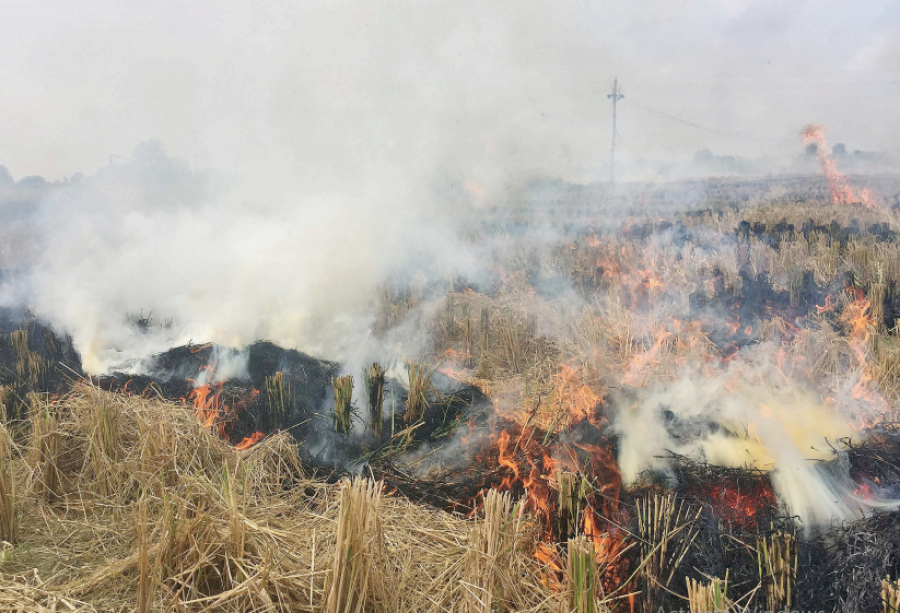National
Farmers in Tarai turn to stubble burning as they cannot sell straws to India
The ongoing lockdown has hit the farming sector across the country hard in the peak springtime harvest season.
Chandan Kumar Mandal
Farmers in Southern plains have resorted to stubble burning as they cannot transport and sell farm residues owing to the ongoing lockdown imposed by the government to stop the spread of Covid-19.
As the country is under a nationwide lockdown for the past three weeks, general life across the country, including agricultural activities, has been severely affected.
Farmers in Balara, which is only a few kilometres from the Indian border, have long been selling crop residues, including husks and wheat straws, to buyers from India. However, as the country is under lockdown and the border is sealed, the farmers have not been able to sell wheat straws to Indian buyers this year and have instead turned to stubble burning at their fields.
“A few years back, farmers used these residues as fodder for livestock. But since people are not into animal husbandry these days, they sell these residues for money,” said Chandrakishore, a journalist from Balara in Sarlahi who writes on Madhes’s politics and socio-economic aspects. “But this year, farmers are setting fire to their farm residues, as they cannot sell them.”
The ongoing lockdown in Nepal and India in the wake of Covid-19 pandemic has especially hit the farming sector during the peak springtime harvest season.
Weeks of lockdowns have forced farmers, field hands, transporters and produce sellers to stay indoors. The shortage of workers is causing agricultural produce to rot in the fields, disrupting the supply chain and increasing the threat of food insecurity in the country.
However, locals say stubble burning has been a problem in Sarlahi and the bordering districts for the past few years.
“Many people in the villages have moved to urban areas and the remaining people do not keep livestock at home these days. With no livestock, farmers—rather than stocking up farm residue to use as fodder for cattle—simply burn them,” said Bijay Kant Mishra, a resident of Balara. “The shortage of farmworkers has further exacerbated the problem, as stocking up crop residue requires manpower.”
According to Mishra, the farmers started burning stubble after seeing farmworkers in India do the same.
“Many of these farmers seasonally migrate to Indian states like Haryana and Punjab to work, where they see farmers burning straws at the field. So when they return to their villages, they do the same,” said Mishra. “Also, the use of the latest machinery for harvesting crops do not leave residues that can be used as fodder for animals.”
Stubble burning has been blamed for the poor quality of air in the Indian capital of New Delhi and most of the north Indian states. Every winter, air quality drops to a record level in New Delhi, which remains covered in heavy smog partly caused by stubble burning in Haryana and Punjab by farmers.
Back in Balara, burning of agricultural residue has started causing problems for the locals.
“Locals are facing difficulties in breathing, as farmers have been burning stubbles in the field,” said Chandrakishore. “The smog caused by the burning of stubbles do not go up in the air but lingers, causing irritations in the eyes and other respiratory problems.”




 9.83°C Kathmandu
9.83°C Kathmandu














